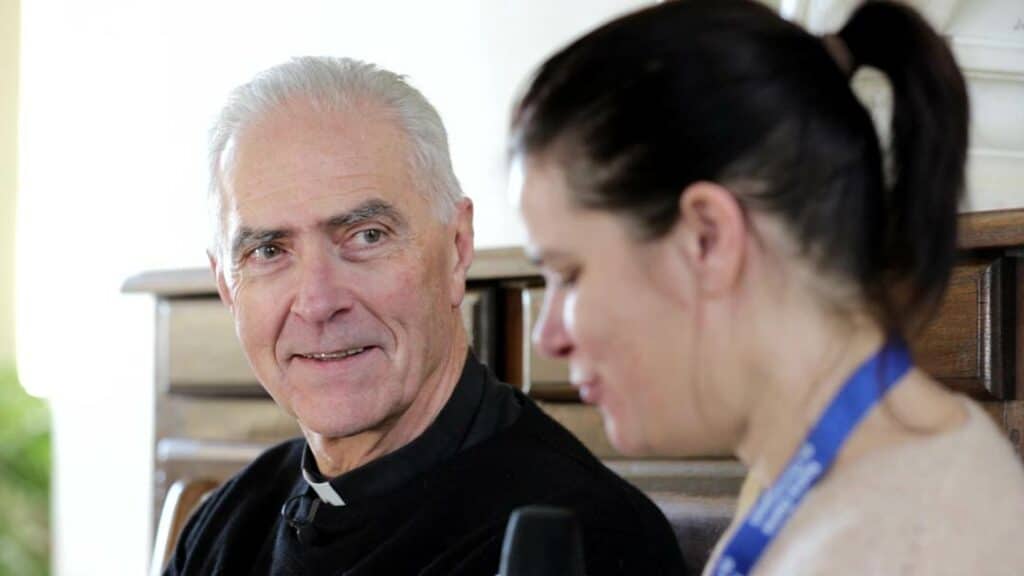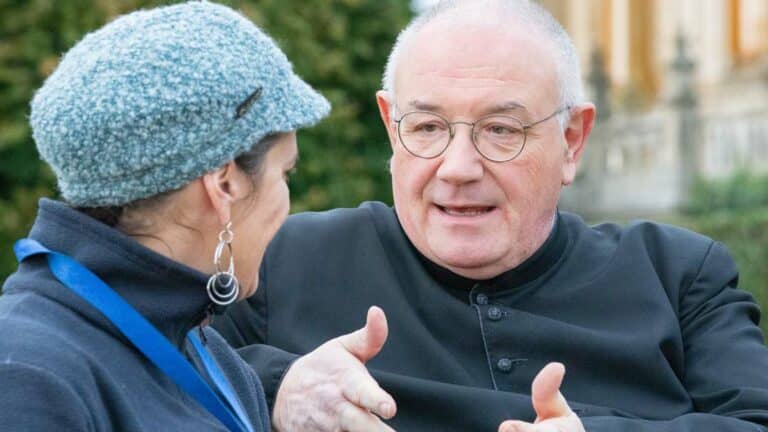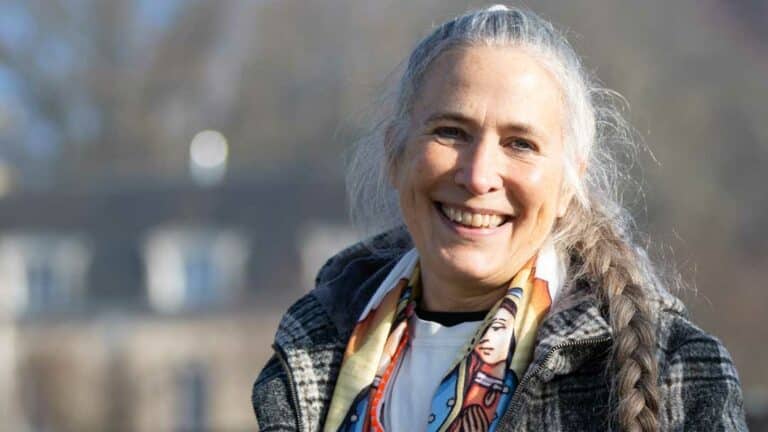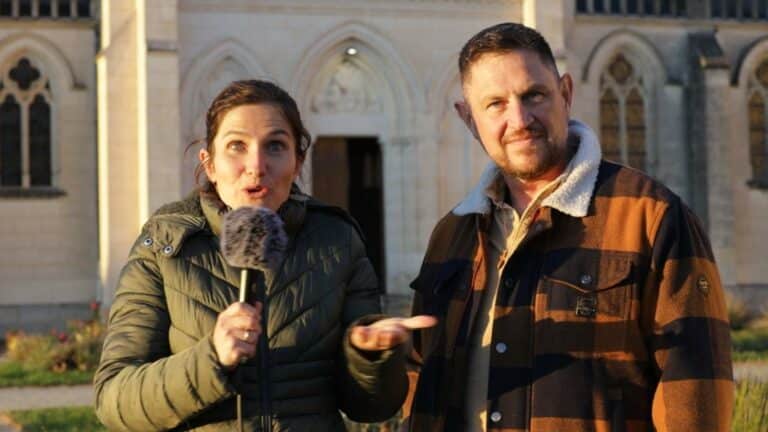Who never wondered: “What’s the use?” when faced to the ordeals of daily life? Georges Bernanos wrote: “The demon of our heart is called ‘What’s the use’.” Why then choosing to be hopeful when everything falls apart? We interviewed Father Charles Lenoir, chaplain at the shrine Notre-Dame de Montligeon. He ignited the flame of hope and hopefulness for us.
Hopefulness, a gift from God
“Hopefulness is a virtue, that is to say something which is given to us by God and which allows us to believe that the future will materialize. Therefore, a good future will materialize.”
Father Charles considers that hopefulness is not about waiting and doing nothing. It is a strength that changes our present time. In his encyclical letter Spe Salvi, pope Benedict XVI pointed out that hopefulness is not just ‘information’ but it is a ‘performative’ reality, i.e; believing in a better future has a direct influence on our present.
“Take a sports game coach for example. Prior to physical training, that person will inspire a winning spirit to his team. Whoever starts thinking they”ve already lost loses in the end.” Hopefulness then is the same process – when you believe you have a happy future you have the strength to act today.”
Hope and hopefulness – What is the difference?
Hope and hopefulness are often confused, however they are clearly different. “Hope is vague, it lies on uncertain desires. Whereas Christian hopefulness is very specific. Indeed, I was created by God to be happy. God wants me to share His blissful life and He helps me to reach that goal.”
Thus, Christian hopefulness is not just based on human will but on the certainty that God is driving our lives. Besides, it gives a direction and a meaning to our lives, exceeding by far a mere uncertain expectation.
Turning the key to ignite hopefulness
“Hopefulness is not innate, it is a theological virtue given by God. However it needs to be maintained. Indeed, it is a gift from God – however we are not robots. Just like with a car, you need to get inro it and turn the key otherwise it won’t move.”
Therefore, we do not all stand on equal footing in relation to hopefulness. Each person responds in a different manner according to their personal experience and choices.
“Some will make progress whereas other won’t. Why is that so? It is a mystery related to individual freedom.” Nevertheless, even when everything seems lost, we can always choose the option of hopefulness. In fact, as long as we are still alive, we have never lost everything.
Remaining hopeful in the midst of hardships
How can you remain hopeful when everything goes apart? “When you are at the bottom of the abyss, it is time to kick yourself up to the surface.” Now, staying hopeful is an inner decision, a personal choice to refuse to be engulfed by despair.
To keep hopefulness alive, “you need to identify your disaster patterns and decide to put a stop to them. For that purpose, prayer is a powerful tool. “Lord, I decide to trust you.” Hopefulness does not come to you naturally, you have to cultivate it through prayer and the sacraments, which give you the strength of Christ.
L’espérance et la relation aux autres
Meeting other human beings can also drive hopefulness. “This is the core of Mother Teresa”s vocation. She chose to be the face of God for the homeless in Calcutta who were dying in the gutters. She wanted to allow all those people to die surrounded by a smile”, remarks Father Charles, with unconcealed emotion. Christian hopefulness is not just a solo journey, it has to be experienced in relation to other people, in love and solidarity.
Father Charles himself testifies how important hopefulness has been in his life. After going through a depression, he understood that trusting God was a necessity. “If I hadn’t decided to trust God I would have fallen apart. This ordeal taught me to build on a different basis, in hopefulness.”
Hopefulness is a matter of life and death
“Hopefulness is an heroic virtue. Some think it is easy to remain hopeful. Still, the real hopeful ones are only those who had the courage to give up the illusions and the lies in which they felt secure and mistook for hopefulness. Hopefulness involves taking a risk, in fact it is the most risky thing imaginable. Hopefulness is the greatest, most difficult victory a person may achieve over their soul”, said Georges Bernanos in a conference in 1945.
Quatre-vingts ans après, le constat est le même, l’espérance est plus qu’un simple sentiment, elle est une vertu qui transforme notre vie. « C’est une question de vie ou de mort. Si je cesse d’espérer, je m’enfonce dans la mort. » Elle n’est pas une illusion, mais une force qui nous permet d’avancer, même dans l’épreuve. Elle se cultive dans la prière, dans les sacrements et dans le lien avec les autres.
Dieu ne nous abandonne jamais. À nous de choisir l’espérance et de la faire grandir chaque jour.




